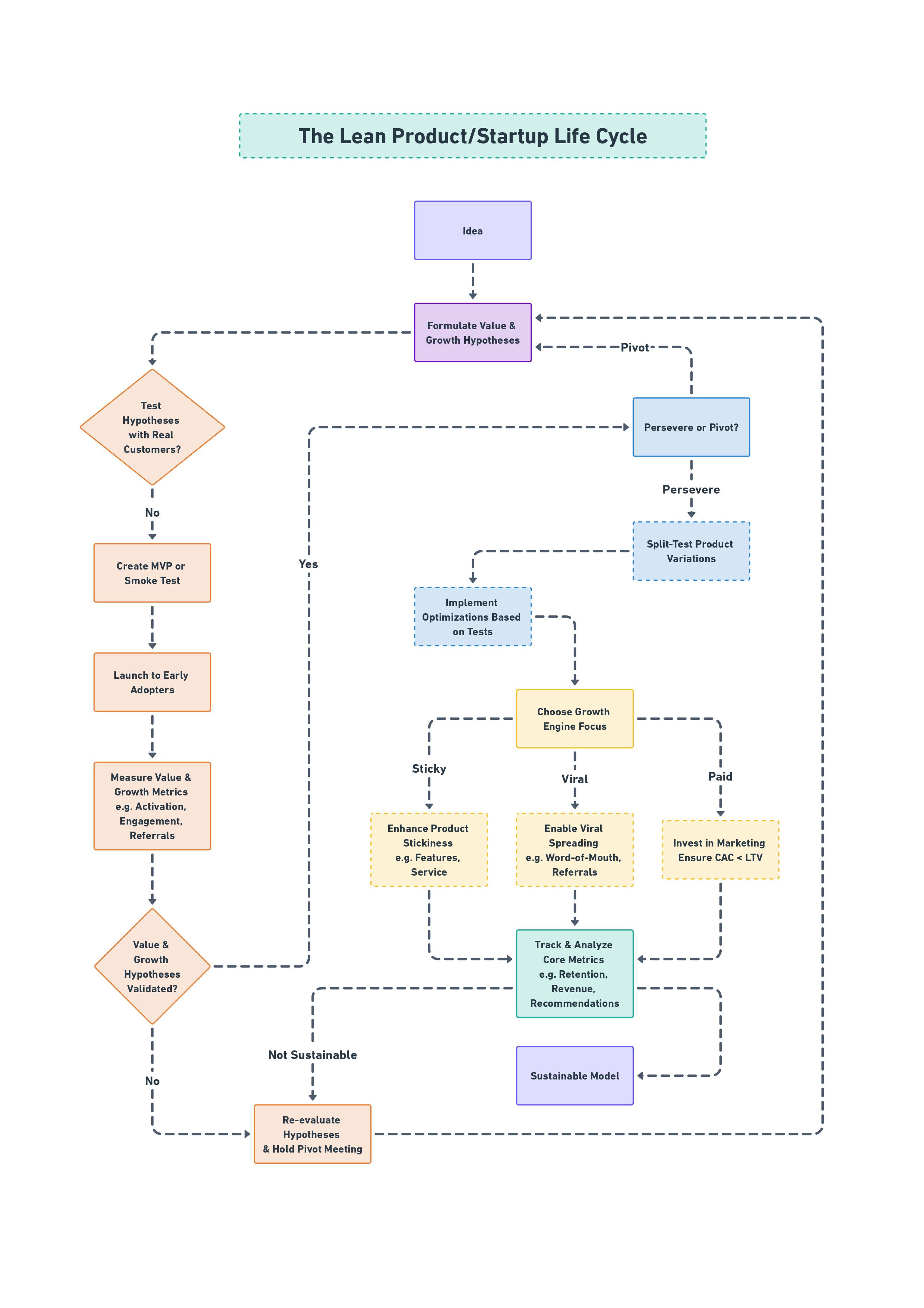The Lean Startup
The Lean Startup methodology, as outlined in the book “The Lean Startup” by Eric Ries, offers a powerful and systematic approach for entrepreneurs and innovators to navigate the inherent uncertainties and risks involved in building a successful new venture.
The core philosophy is around the concept of “validated learning” – a scientific process of testing hypotheses about a product or business model by engaging with real customers and gathering empirical data rather than relying solely on intuition or conventional planning techniques.
The method emphasizes the importance of starting with a “minimal viable product” (MVP) – a basic version of the product that captures the essential value proposition – and using it to quickly and efficiently validate or invalidate key assumptions about customer needs and market dynamics.
This approach enables startups to avoid wasting valuable resources on building products that customers may not actually want or need, and instead focuses their efforts on iteratively refining and optimizing the product based on continuous feedback and measurable results.
The diagram above illustrates the cyclical nature of the Lean Startup process, which involves formulating hypotheses, creating an MVP, measuring customer responses, analyzing the data, and then making informed decisions to either persevere with the current strategy or pivot to a new direction.
This iterative loop of “build-measure-learn” allows startups to rapidly adapt and evolve their products and business models in response to real-world customer behavior, increasing the likelihood of finding a sustainable and scalable solution.
Moreover, the diagram highlights the importance of rigorous experimentation and data-driven decision-making, rather than relying on vanity metrics or conventional wisdom.
By continuously split-testing product variations and tracking meaningful core metrics (such as customer acquisition, retention, and revenue), startups can objectively assess their progress and identify opportunities for optimization or areas that require fundamental changes.
The Lean Startup methodology also emphasizes the importance of focusing on a specific growth engine (sticky, viral, or paid) and customizing the product and strategies to accelerate that particular engine.
This focused approach helps startups allocate their limited resources more effectively and increase their chances of achieving a self-sustaining growth trajectory.
Overall, the Lean Startup approach provides a structured and adaptable framework for navigating the uncertainties of entrepreneurship. By embracing a mindset of continuous experimentation, customer-centric innovation, and data-driven decision-making, startups can significantly improve their odds of developing successful and sustainable businesses.
